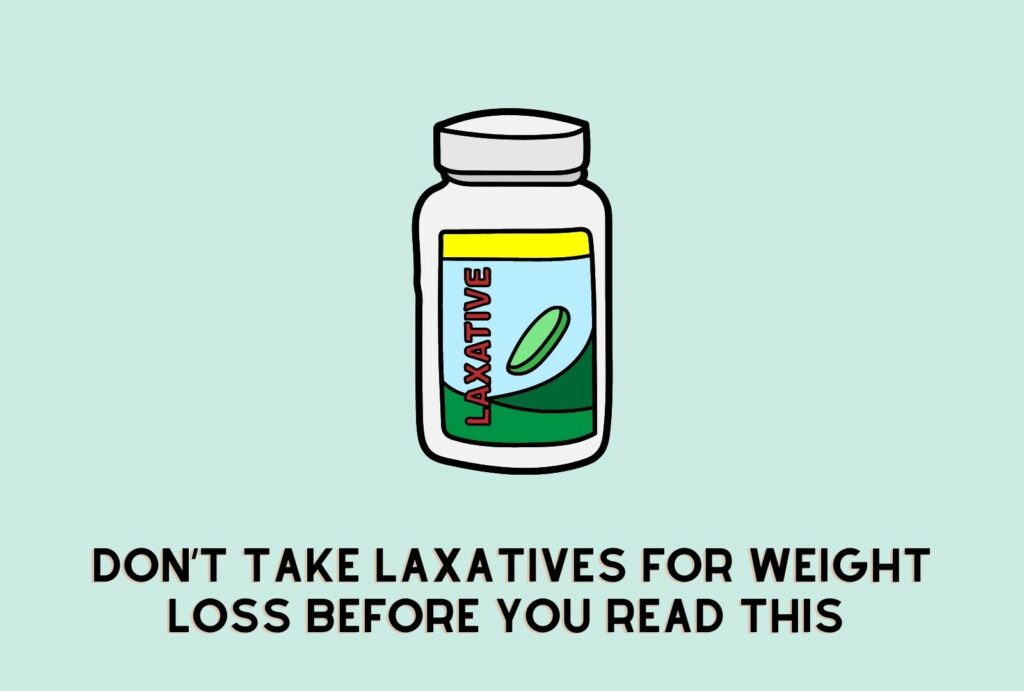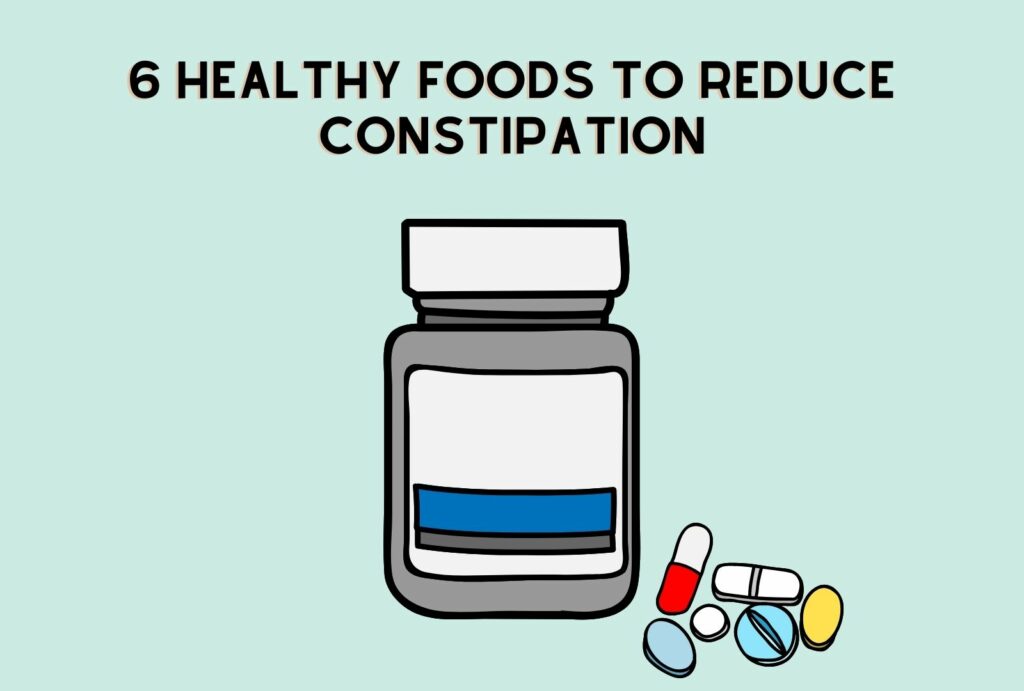
Laxatives for weight loss have become a popular trend in recent years, with many people turning to these types of products as a quick fix for shedding unwanted pounds. However, using laxatives for weight loss can be dangerous and ineffective, and it’s important to understand the potential risks before deciding to try this method.
First and foremost, using laxatives for weight loss can be dangerous to your health. Laxatives work by stimulating the muscles in the intestines to contract, which can lead to diarrhea and dehydration. Overuse of laxatives can lead to electrolyte imbalances, which can cause serious health problems such as heart palpitations, seizures, and even death.
Furthermore, using laxatives for weight loss is not an effective way to shed unwanted pounds. While laxatives may cause temporary weight loss by flushing out excess water and waste from the body, they do not actually burn fat or promote long-term weight loss. In fact, overuse of laxatives can lead to weight gain in the long run, as it can disrupt the body’s natural digestion and metabolism processes.
It’s also important to note that laxatives for weight loss can be addictive, both physically and psychologically. Over time, the body may become reliant on laxatives to maintain regular bowel movements, and individuals may develop an unhealthy relationship with food and their body image.
If you’re looking to lose weight in a safe and effective way, it’s important to focus on a healthy diet and regular physical activity. Incorporating whole, nutrient-dense foods into your diet and engaging in regular exercise can help you shed unwanted pounds, build lean muscle mass, and improve overall health and well-being.
In conclusion, using laxatives for weight loss is not a safe or effective way to achieve your fitness goals. Instead, it’s important to focus on a healthy diet and regular physical activity to promote sustainable weight loss and improve overall health and well-being. If you’re struggling with weight loss, consider consulting with a healthcare professional or registered dietitian for guidance and support.
What Do Laxatives Do To Your Body?

Laxatives for weight loss have become a popular trend in recent years, but it’s important to understand what these products do to your body before deciding to use them. Laxatives are designed to help relieve constipation by promoting bowel movements, but overuse of laxatives can have negative effects on your health and well-being.
When you take laxatives, they work by stimulating the muscles in your intestines to contract, which can help move waste and excess water out of your body. However, overuse of laxatives can disrupt the natural processes of your digestive system, leading to negative side effects such as dehydration, electrolyte imbalances, and even damage to the digestive tract.
Furthermore, laxatives for weight loss do not actually burn fat or promote long-term weight loss. While they may cause temporary weight loss by flushing out excess water and waste from the body, they do not address the underlying issues that contribute to weight gain, such as poor nutrition and lack of physical activity.
Over time, the body may become reliant on laxatives to maintain regular bowel movements, leading to physical and psychological dependence on these products. This can lead to an unhealthy relationship with food and body image, as individuals may feel the need to use laxatives to control their weight and appearance.
Additionally, laxatives can interfere with the absorption of nutrients from food, leading to malnutrition and other health issues. Long-term use of laxatives can also damage the intestinal lining and disrupt the natural balance of bacteria in the gut, leading to digestive problems and other health issues.
In conclusion, while laxatives can be a useful tool for relieving constipation in some cases, overuse of laxatives for weight loss can have negative effects on your health and well-being. Instead of relying on laxatives for weight loss, it’s important to focus on a healthy diet and regular physical activity to promote sustainable weight loss and improve overall health and well-being. If you’re struggling with constipation or other digestive issues, consider consulting with a healthcare professional for guidance and support.
Do Stool Softeners Help You Lose Weight?
Stool softeners and laxatives are often used to treat constipation and other digestive issues. However, some people wonder if these products can help with weight loss. While stool softeners may promote regular bowel movements and help with bloating and discomfort, they are not a weight loss solution and should not be used as such.
Unlike laxatives for weight loss, stool softeners work by adding moisture to the stool, making it easier to pass through the digestive tract. This can help alleviate constipation and prevent the discomfort and bloating that often accompanies it. However, stool softeners do not promote fat burning or stimulate the metabolism, and they do not have any direct impact on weight loss.
Flushing out excess water
In fact, relying on stool softeners or laxatives for weight loss can be harmful to your health. These products are not designed for long-term use and can lead to dehydration, electrolyte imbalances, and damage to the digestive tract. Furthermore, while they may cause temporary weight loss by flushing out excess water and waste from the body, this weight loss is not sustainable and does not address the underlying issues that contribute to weight gain.
Balanced diet and regular physical activity
If you’re looking to lose weight and improve your health, the best approach is to focus on a balanced diet and regular physical activity. Incorporating more fruits, vegetables, whole grains, lean proteins, and healthy fats into your diet can help you feel fuller and more satisfied, while also providing the nutrients your body needs to function properly. Engaging in regular physical activity, such as walking, jogging, or strength training, can help you burn calories and build muscle mass, which can help boost your metabolism and promote sustainable weight loss.
Healthy lifestyle
In conclusion, while stool softeners and laxatives for weight loss may provide temporary relief for constipation and other digestive issues, they are not a solution for weight loss and can be harmful to your health if used inappropriately. Instead, focus on a healthy lifestyle that includes a balanced diet and regular physical activity to promote sustainable weight loss and improve overall health and well-being. If you’re struggling with constipation or other digestive issues, consult with a healthcare professional for guidance and support.
3 Side Effects to Consider Before Taking Laxatives for Weight Loss
Laxatives are a type of medication that is commonly used to treat constipation. However, some people misuse them as a weight loss aid, which can have harmful side effects. If you are considering taking laxatives for weight loss, it is important to understand the potential risks and side effects associated with their use.
1. Dehydration:
Laxatives work by drawing water into the intestines, which can lead to dehydration if you are not drinking enough fluids. This can cause symptoms such as dizziness, headaches, dry mouth, and fatigue. In severe cases, dehydration can lead to electrolyte imbalances, kidney damage, and other serious health issues.
2. Gastrointestinal Problems:
Laxatives for weight loss can cause a variety of gastrointestinal problems, including bloating, gas, cramping, and diarrhea. These symptoms can be uncomfortable and may interfere with your daily activities. In addition, chronic laxative use can damage the intestines, leading to inflammation, scarring, and other digestive problems.
3. Nutrient Deficiencies:
Laxatives for weight loss can interfere with the absorption of nutrients from food, leading to deficiencies in vitamins, minerals, and other essential nutrients. This can weaken the immune system, reduce energy levels, and increase the risk of chronic diseases. In addition, laxative abuse can lead to an eating disorder, which can have long-term physical and psychological effects.
If you are considering taking laxatives for weight loss, it is important to talk to your healthcare provider first. They can help you understand the potential risks and side effects associated with their use and provide guidance on safe and effective weight loss strategies. In general, the best way to lose weight and maintain a healthy weight is through a balanced diet and regular exercise. These lifestyle changes can help you achieve sustainable weight loss and improve your overall health and well-being.
In conclusion, laxatives for weight loss may seem like a quick and easy solution to shedding pounds, but they can have serious side effects and are not a safe or effective way to lose weight. Instead, focus on making lifestyle changes that promote healthy eating and regular exercise. If you are struggling with constipation or other digestive issues, talk to your healthcare provider about safe and effective treatments.
6 Healthy Foods To Reduce Constipation

Constipation is a common digestive issue that can be caused by a variety of factors, including a lack of fiber in the diet, dehydration, and a sedentary lifestyle. While laxatives for weight loss may seem like a quick fix for constipation, they can have harmful side effects. Instead, incorporating healthy foods into your diet can help reduce constipation and promote digestive health.
1. Berries:
Berries are high in fiber and antioxidants, making them a great choice for promoting digestive health. They also contain a natural sugar alcohol called sorbitol, which has a laxative effect.
2. Leafy Greens:
Leafy greens like spinach, kale, and collard greens are high in fiber and can help promote regular bowel movements. They are also rich in vitamins and minerals that are important for overall health.
3. Legumes:
Legumes like lentils, chickpeas, and black beans are a great source of fiber and protein. They also contain resistant starch, which can help promote healthy gut bacteria and improve digestion.
4. Whole Grains:
Whole grains like brown rice, quinoa, and whole wheat bread are high in fiber and can help keep the digestive system moving. They are also a good source of vitamins and minerals that are important for overall health.
5. Water:
Staying hydrated is important for preventing constipation. Drinking plenty of water throughout the day can help keep stool soft and easy to pass.
6. Prunes:
Prunes are a natural laxative and are high in fiber and sorbitol. They can be eaten as a snack or added to recipes like oatmeal or smoothies.
In conclusion, incorporating healthy foods into your diet can help reduce constipation and promote digestive health. Laxatives for weight loss may seem like a quick fix for constipation, but they can have harmful side effects. Instead, focus on eating a diet rich in fiber, leafy greens, legumes, whole grains, and staying hydrated with water. Prunes are also a great natural laxative and can be added to your diet as a snack or added to recipes. If you continue to struggle with constipation, it’s important to talk to your healthcare provider to explore other safe and effective treatment options.
Final Words
In conclusion, while laxatives for weight loss may seem like a quick fix, they can have harmful side effects on your body. Laxatives are meant to help relieve occasional constipation and not for weight loss. Overusing laxatives for weight loss can lead to dehydration, electrolyte imbalances, and damage to your digestive system. It’s important to prioritize a healthy lifestyle, including a balanced diet and regular exercise, for long-term weight management and digestive health.
If you’re struggling with constipation, incorporating healthy foods into your diet, such as fiber-rich foods, leafy greens, legumes, and whole grains, can help promote regular bowel movements and digestive health. Staying hydrated with water is also important for keeping your stool soft and easy to pass. Prunes are a great natural laxative and can be added to your diet as a snack or added to recipes.
If you’re considering taking laxatives for weight loss, it’s important to speak to your healthcare provider first. They can help you identify the root cause of your weight struggles and constipation and recommend safe and effective treatment options. Your healthcare provider can also help you create a healthy weight loss plan that includes a balanced diet, regular exercise, and safe and effective weight loss supplements, if necessary.
In conclusion, while laxatives for weight loss may seem like a quick fix, they can have harmful side effects and are not a sustainable solution for long-term weight management. It’s important to prioritize a healthy lifestyle and seek medical advice for safe and effective treatment options. With a balanced diet, regular exercise, and the right guidance from your healthcare provider, you can achieve your weight loss goals and maintain good digestive health.